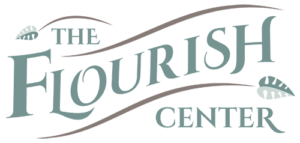Written by our Licensed Professional Counselor, Jody Cecil
One of my favorite symbols is the ampersand. Anyone who visits my home will find a few scattered throughout, in varied sizes, textures and colors. The symbol itself stands for the word “and”. Seems a bit strange to add them into your décor, right? Perhaps – until you see the power of this small character, a symbol of possibility and connection.
Our brain and bodies are wired for protection. To think in terms of either/or allows us to survive. Many years ago, as a young child, I wandered outside to play while my parents were entertaining a group of their friends. While exploring, I discovered mushrooms growing in our lawn. Now, I loved mushrooms and decided to eat a few while everyone else was enjoying their own meal. Turns out they were poisonous toadstools, not mushrooms. You can imagine what happened next. In so many situations, the categories of good and bad can keep us safe.
So much of our experience as human beings, however, is much more complex. If we interpret or perceive something as only good or bad / all or nothing, we may become stuck and rigid in our thinking. This rigidity often leads to distress, both internally and in relationships. Here’s where “&” invites hope. All of life includes both comfort and discomfort, beauty and heart ache, struggle and success, anger and peace. Even when ideas or circumstances feel like they are in conflict, the reality is that both sides are valid.
A dialectic is the idea that two opposites can both be true at the same time. To be dialectical means expanding your way of seeing things, being more flexible and approachable. We can practice being dialectical in our everyday experiences and interactions. Consider where your thinking might automatically perceive a situation as either/or and try to shift it a bit. Yes, you’re frustrated by the driver who just cut you off AND they may have had a good reason why they were driving so quickly. Our partners may have said something hurtful AND we recognize they just had a stressful day. We want to be more motivated to change AND we’re doing the best we can. Dialectical thinking invites us to validate and normalize a situation while at the same time, naming something that offers hope.
May we all learn to better embrace the power and hope of the “both/and”.
Interested in exploring the possibility of counseling? Reach out to Jody Cecil, our licensed professional counselor at the Flourish Center. You can contact her at https://takingrootcounseling.com.


Recent Comments